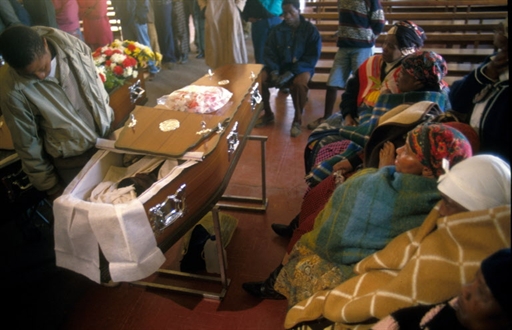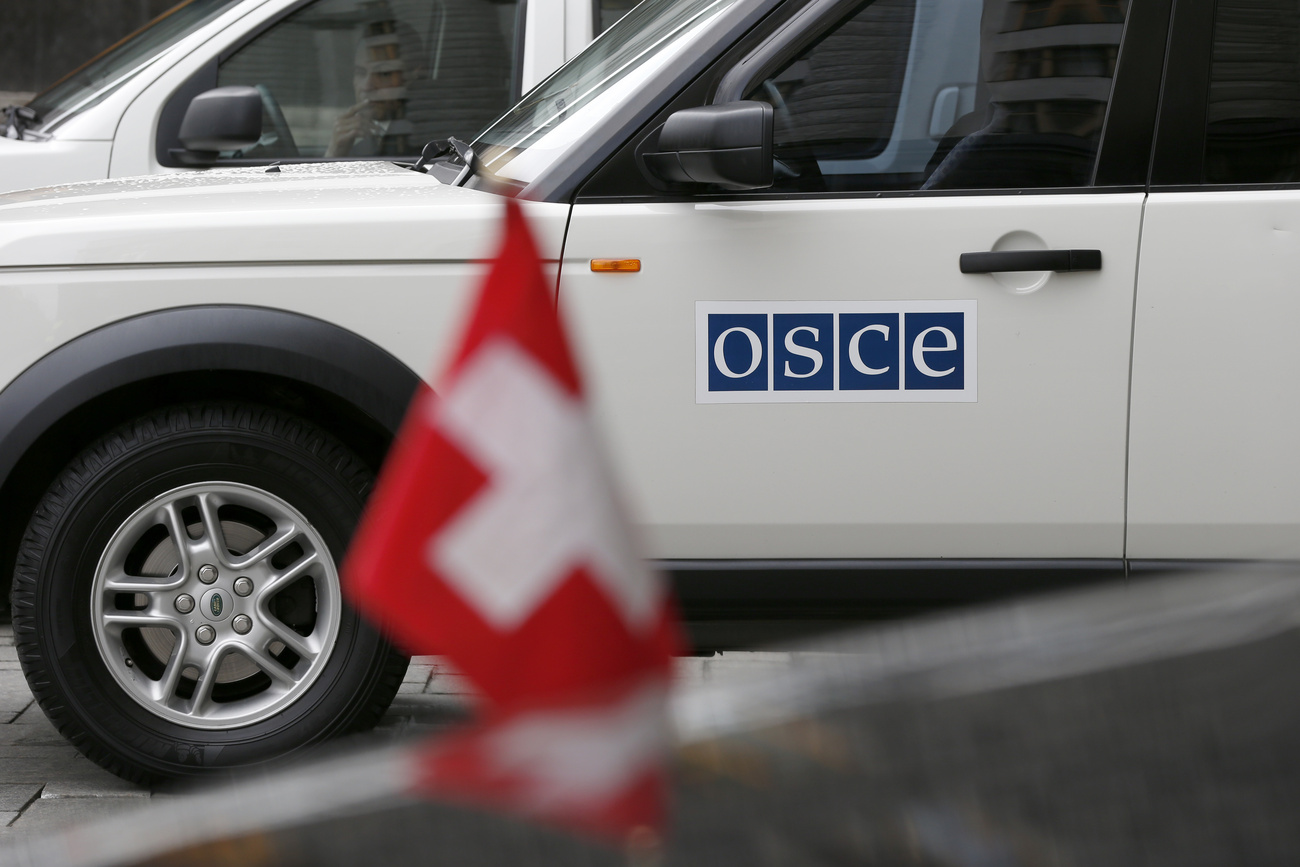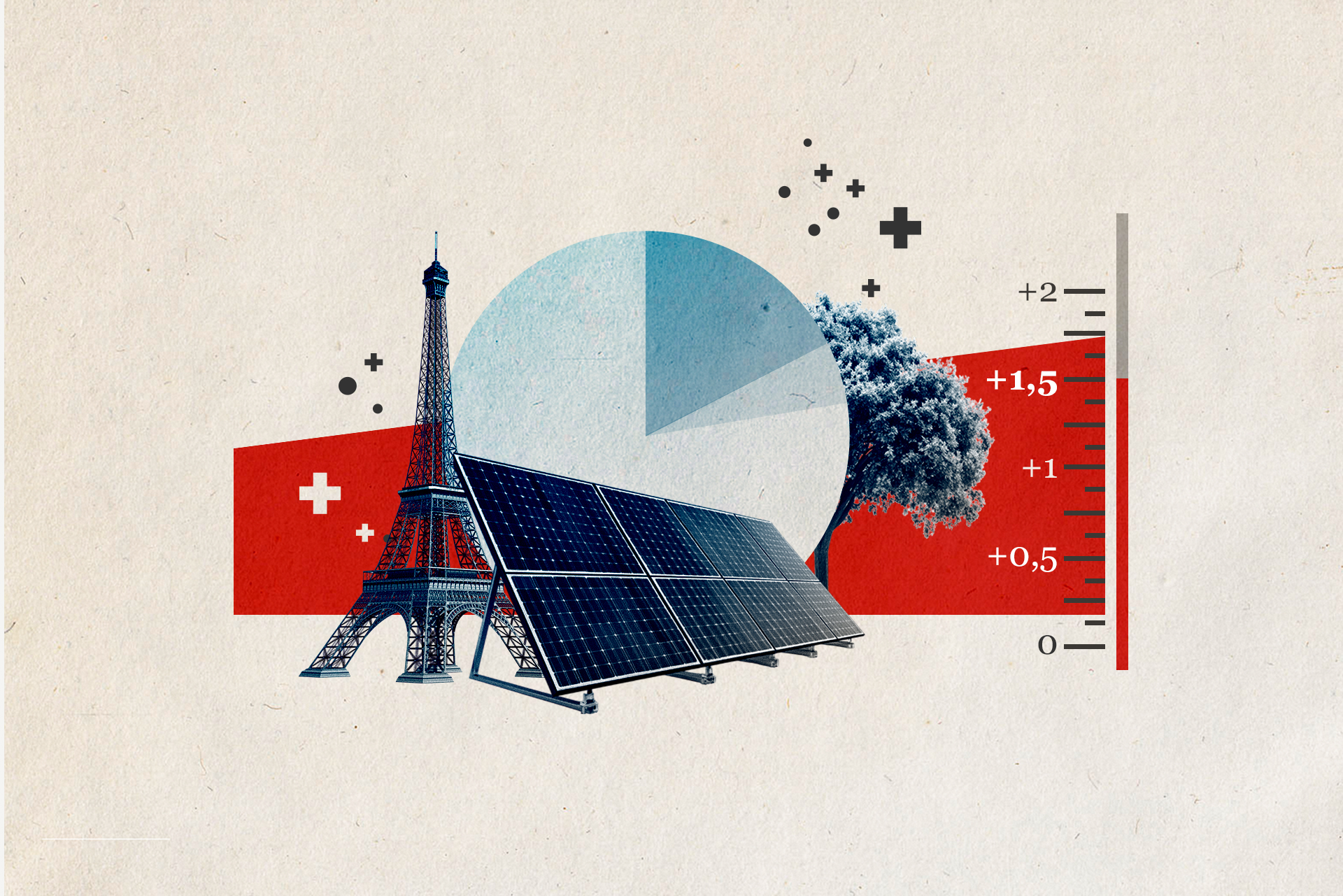
South Africa’s police struggle to contain crime

As South Africa gears up for the 2010 football World Cup, crime is one of the country’s main concerns and better social and economic conditions could be the answer.
Johan Burger, a researcher at the Pretoria-based Institute for Security Studies, tells swissinfo.ch about the endemic violence affecting the country as a result of inequalities in society and a violent history.
A former policemen, Burger now works for the Pretoria Institute for Security Studies (ISS), an independent organisation supported financially by Switzerland, which enjoys a high degree of credibility in South Africa.
The province of Gauteng, South Africa’s economic powerhouse, is suffering from a high crime rate.
In Johannesburg, around 17 murders are committed each day. Burglaries and the violence that accompanies them feature regularly make the local news headlines.
But just as conspicuous is the security mania that mirrors this all-too-real scourge. The boundary walls of middle-class houses are almost universally topped with live electric wires. To get in, you generally have to open four or five gates using different keys.
In Pretoria, the seat of government, the homes of important people are surrounded by several electrified fences, sometimes more than ten metres in height, separated by walkways that are lit up at night and patrolled by security guards.
swissinfo.ch: Why is South African society so violent?
Johan Burger: I can think of two main reasons. The first has to do with our country’s history. For decades, we were caught up in violent conflicts, in some cases beyond our borders. Large numbers of young militants involved in black liberation movements received military training.
Only since 1994 has South Africa officially been at peace. But weapons continue to circulate in large numbers. Many of today’s hardened criminals underwent military training in the past.
The other key factor is the ever-widening gap between rich and poor. The expectations of large parts of the population have still not been met. For more than 20 years, the inhabitants of the townships have been promised water, electricity and a decent way of life, but nothing has changed. Frustration naturally leads to violence.
swissinfo.ch: So crime is just another way of getting out of poverty?
J.B.: Precisely. At least as far as theft is concerned. A recent survey we conducted of young burglars showed that most of them were not aware of having done anything wrong.
When you live in Alexandra, a poor township to the north of Johannesburg, and every day you see luxury four-wheel drive cars passing through on the way to Sandton, you think that you, too, are entitled to a slice of the cake. And the only way to get it, nowadays, is through violence.
swissinfo.ch: How can South Africa solve this problem?
J.B.: It won’t be easy. We have to improve the social and economic conditions of a large part of the population. But we we must also be more robust in tackling crime.
At present, there is a strong sense of impunity. Some criminals have told us they committed more than a hundred burglaries before getting caught. The crime clean-up rate is ridiculously low. It has to be said that crime pays in South Africa. By stealing a couple of motor vehicles a month, you can earn a very good living.
swissinfo.ch: Does this mean that the police are not doing their job properly?
J.B.: Police numbers have increased by 60,000 over the last ten years, particularly in the run-up to the World Cup. But very few of them are able to conduct a serious investigation.
Moreover, the South African police force has lost a very large number of experienced officers in recent years.
To reach a position of responsibility, you have to be the right skin colour; ability is not a primary consideration.
Many white police officers, such as myself, have left the force. ‘Two wrongs don’t make a right’, as they say. There needed to be a compromise between positive discrimination, which was necessary, and the safeguarding of skills.
Another great concern is to do with private security firms, which account for more than two thirds (420,000) of total security personnel. In several cases, it has transpired that the agents themselves were committing the burglaries. Rather than solving the problem, this makes it worse.
swissinfo.ch: More than 18,000 people are killed each year in South Africa. Who are the most likely victims?
J.B.: The victims are mainly young blacks aged between 18 and 26. Almost 80 per cent of murders are in fact committed within the circle of family and close relationships.
A survey conducted in a township in the Northern Cape showed that most crime took place at weekends. People paid on a weekly basis go home, get drunk, then pick a quarrel. Since a lot of weapons are still in circulation, it often ends up with someone being killed.
Generally speaking, blacks are more likely to be victims of crime than whites.
swissinfo.ch: Many fans are hesitant to travel to South Africa for the World Cup. Are they right to fear for their security?
J.B.: I am confident that South Africa will be a safe place during the World Cup. The authorities have mobilised sufficient resources to deal with the various threats.
If I were a member of the government, I would be more concerned as to whether the roads and transport network will be completed on time, rather than focus on security problems.
The fans will nevertheless have to be vigilant, especially in the streets around the stadiums. Street muggings in fact account for more than 60 per cent of thefts involving violence.
I have, for example, advised Dutch fans to take off their very recognisable orange jerseys on leaving the stadium. It is silly to signal the fact that you are a tourist, potentially loaded with money.
Samuel Jaberg, swissinfo.ch in Pretoria (adapted from French)
43% of the population in South Africa lives on less than $2 a day.
The official unemployment rate is 24.5%, but in actual fact it is estimated to be at least 40%.
Last year, about 260,000 jobs were cut, affecting notably young black men with temporary employment.
13 million – out of about 48 million – people in South Africa depend on welfare payments.
The average monthly income has risen by 37.3% for black South Africans since 1995. White South Africans saw their income increase by 83.5% on average.
50% of the South African population live in conditions of a developing country, while 13% enjoy a standard of living of an industrialised country, according to the World Bank.
37% of the population have neither access to fresh water nor to electricity, one in four has no primary school education.
Life expectancy has dropped by ten years over the past decade. On average people die at the age of 50. 18% of people aged 15-49 are HIV positive.
More than 18,000 people were murdered in South Africa between April 2008 and March 2009.
But the number of murders has been on the decrease since the record year of 1995/1996 when 68 out of 100,000 died as a result of a crime. The current rate is just over 37.
South Africa is considered more violent than Brazil (26 murders out of 100,000 deaths), Mexico (10), and the US (nearly 6). Honduras leads the crime table with 58 murders.
South Africa’s authorities reported 27,750 cases of robbery and theft in 2008/2009. But experts estimate the figure at 1,500 cases of theft and robbery per day – mainly committed within families and in other close relationships.
The number of break-ins soared in 2008/2009: An 108% increase of break-ins at workplaces, 44% into private homes and 9% more car break-ins.
The authorities spend SFr170 million on additional security for the World Cup, including the purchase of helicopters, water cannon and vehicles. About 45,000 police are to be deployed and special courts set up in the host cities.

In compliance with the JTI standards
More: SWI swissinfo.ch certified by the Journalism Trust Initiative





























You can find an overview of ongoing debates with our journalists here . Please join us!
If you want to start a conversation about a topic raised in this article or want to report factual errors, email us at english@swissinfo.ch.